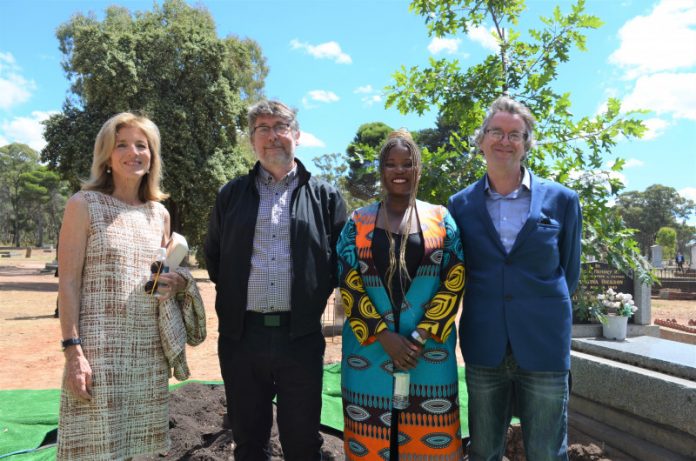
US Ambassador Caroline Kennedy, Consul General Kathleen Lively, and filmmaker, historian, and journalist Santilla Chingaipe, were in Bendigo on Monday to unveil a plaque to acknowledge the life of John Joseph, an African-American leader of the Eureka Rebellion.
John Joseph was arrested for protesting government licensing fees during the Eureka Stockade and was tried for high treason before being acquitted by a jury. He was carried shoulder-high through a cheering crowd of thousands outside the courtroom.
After he died in 1858, John was placed in an unmarked grave at White Hills Cemetery in Bendigo. During this week’s celebrations, an American Oak was planted to honour his significance in history and as a part of the United States commitment to racial equity and recognition of historical justice.
Ambassador Kennedy asked those gathered to think of the people missing from today’s narrative and to take responsibility to include them.
“We can be inspired by the courage of the miners and renew our commitment to justice for those who have been left out and left behind. We can take heart from the recognition that great progress has occurred while recognising that there is much more to do. We can hold our governments accountable to their democratic promises and we can hold ourselves accountable for creating a more just and honest world,” Ambassador Kennedy said.
Former Kansas State Senator Donald Betts told the Mail that Ambassador Kennedy is leading by example.
“This is a real power move which will hopefully lead to more unmarked graves being revealed,” Mr Betts said.
John’s lack of recognition in our country’s long and colourful history is, unfortunately, a common occurrence amongst our First Nations, Chinese, African-American, and female descendants.
Working to bring these stories to the fore is Castlemaine production company Chemical Media, who last year produced a documentary featuring Santilla and her work to recognise significant African-Americans in Australia’s gold rush history in the SBS film ‘Our African Roots’.
Santilla said she feels humbled to pay tribute to John Joseph.
“It’s a shame it took a foreign government to acknowledge John’s contribution to Australia,” Santilla commented.
“His life was marred by injustice, so this is a bittersweet moment that speaks to how far behind we still are in these conversations. We’re still not there yet.”
Santilla has been researching African American people in Australia’s history and is currently working on a book entitled ‘Black Convicts: How Slavery Shaped Colonised Australia’, due to be released next year.
“When I started my research, I found that there were 100s and 100s of these stories that began to unravel, with African American settlers in their thousands,” Santilla said.
“So I had to focus on those who had made a significant contribution.
One of the lives featured in Santilla’s documentary, ‘Our African Roots’ was Fanny Finch, a Castlemaine businesswoman of African heritage, who is the first known woman to cast a vote in an Australian election in 1856.
Chemical Media Executive Producer Tony Jackson told the Mail that it’s not often that he gets to produce films that have a clear, tangible outcome.
“History was written by white men and while the other people’s stories were not necessarily hidden,” said Tony. “They haven’t been told yet either.”









